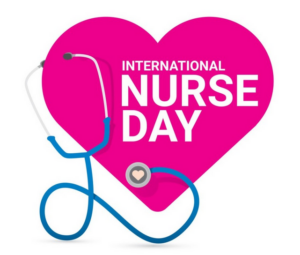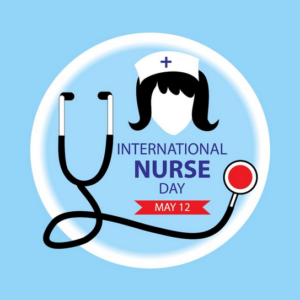International Nursing
 International nursing refers to the practice of nursing in a foreign country, either for a short period or a long-term assignment.
International nursing refers to the practice of nursing in a foreign country, either for a short period or a long-term assignment.
This profession offers an exciting opportunity for nurses to work in diverse healthcare settings and provide care to patients from various cultural backgrounds.
Nurses who decide to work overseas may encounter different healthcare systems, languages, and cultural norms, making international nursing an enriching and challenging career choice.
In this blog, we will explore the many facets of nursing abroad, the advantages it offers, the regulations involved, and the challenges nurses may face while working overseas. We’ll also delve into the specifics of working as a nurse overseas, discuss international nursing roles, and answer the question of how to become an international nurse. If you’re interested in pursuing a global nursing career, keep reading for insights into the opportunities and challenges that lie ahead.

Struggling to meet your deadline?
Get your assignment on International Nursing done by certified MDs and PhDs in the USA. ORDER NOW!
What is International Nursing?
International nursing involves working as a nurse in another country. Nurses who take on international nursing roles provide care in diverse settings, ranging from urban hospitals to rural clinics. They work with patients from various backgrounds, utilizing different healthcare systems to deliver care.
Some of the best nursing papers and nursing assignments available online explore the complexities of practicing in different countries, offering research-based insights into how nursing practices vary across the globe. Whether it’s providing direct patient care, teaching, or engaging in healthcare research, nurses working internationally gain unique experiences that help them grow professionally.
Advantages of International Nursing
International nursing offers several benefits, both professionally and personally. Here are some key advantages that make working abroad so appealing:
Cultural Competence in International Nursing
One of the greatest benefits of nursing abroad is the opportunity to develop cultural competence. Nurses working overseas must navigate various cultural norms, languages, and traditions. Becoming culturally competent means understanding, respecting, and responding effectively to the cultural needs of patients from different backgrounds. This skill is crucial for providing high-quality care in a multicultural world.
Working in diverse environments helps nurses to not only improve their communication skills but also to develop empathy and a deeper understanding of how cultural factors affect health and healthcare delivery. Nurses who gain this experience are better equipped to handle complex cases when they return to their home countries. For instance, nursing research on the impact of culture on healthcare outcomes has shown that culturally competent care leads to improved patient satisfaction and better health outcomes.
Exposure to Different Healthcare Systems
Another advantage of international nursing is the exposure to a variety of healthcare systems. Nurses who work in different countries get the chance to learn how healthcare is delivered in diverse settings, whether in developed nations with sophisticated medical technologies or in developing countries with limited resources. This experience provides valuable insights that can be brought back to improve practices in one’s home country.
For instance, some countries may have advanced healthcare systems with cutting-edge technology, while others may be dealing with limited medical resources or unique healthcare challenges. Nurses working internationally gain knowledge about how to adapt to these different systems and can contribute to global health improvements. This exposure also helps nurses become versatile professionals, able to handle a wide range of challenges.
Career Advancement in International Nursing
Working overseas can significantly advance your career. International experience is highly valued in the nursing profession because it demonstrates adaptability, independence, and a willingness to engage with complex healthcare issues. Many nurses find that their international work experience helps them land leadership positions, research opportunities, or teaching roles when they return to their home country. Nurses working internationally also have the opportunity to engage in research and contribute to nursing papers and top nursing essays that explore global healthcare topics.
Moreover, international assignments often come with competitive salaries, travel opportunities, and benefits that can make the experience both professionally rewarding and financially attractive. Nurses who have completed nursing exams in different countries may also find that their qualifications are recognized across borders, opening doors to even more nursing jobs abroad.
Networking Opportunities in Global Nursing Careers
One of the hidden gems of international nursing is the opportunity to network with healthcare professionals from around the world. Global nursing careers are full of possibilities for collaboration and knowledge exchange. Working alongside global health nurses, researchers, and educators can help you build connections that open doors to new professional opportunities. Networking with international colleagues also provides a broader perspective on global health issues, fostering collaboration on research projects or international health initiatives.
Challenges in International Nursing
While nursing abroad offers many benefits, it also presents its own set of challenges. Nurses need to be prepared to face and overcome these obstacles to ensure a successful international career.
Legal and Regulatory Complexities
 One of the primary challenges of working as a nurse overseas is navigating the legal and regulatory complexities in different countries. Each nation has its own requirements for nursing licensure, which may involve passing an exam, obtaining a visa, or meeting specific educational or professional standards. Nurses need to understand the international nursing licensure requirements before they can start working abroad.
One of the primary challenges of working as a nurse overseas is navigating the legal and regulatory complexities in different countries. Each nation has its own requirements for nursing licensure, which may involve passing an exam, obtaining a visa, or meeting specific educational or professional standards. Nurses need to understand the international nursing licensure requirements before they can start working abroad.
These legal hurdles can be time-consuming and costly, so it’s important to plan ahead. Nurses who are interested in international nursing opportunities should carefully research the specific requirements for the country they wish to work in.
Language and Cultural Barriers
Language barriers can make it difficult to communicate with patients, their families, and even local healthcare staff. Although many healthcare settings require nurses to speak English, cultural differences in communication styles can still present challenges. Misunderstandings may occur if nurses are not familiar with local customs, gestures, or language nuances.
Developing a basic understanding of the local language can go a long way in easing these barriers. Additionally, nurses may need to learn about the cultural competence in nursing specific to the country they are working in. Taking cultural sensitivity courses or participating in cultural immersion programs can help nurses adapt more easily to the local environment.
Professional and Personal Adjustment
Adjusting to a new country and healthcare system can be difficult. International nurses may experience culture shock, homesickness, and personal isolation, especially when moving to a country with very different social norms and healthcare practices. It’s crucial to be open-minded and prepared for these adjustments to avoid feelings of frustration or burnout. Nurses working in developing countries may face additional challenges, such as working in resource-limited settings or dealing with health disparities.
International Nursing Guidelines
To work as a nurse abroad, it’s important to adhere to international standards and regulations. Below are some of the key international nursing guidelines nurses should familiarize themselves with before pursuing a career overseas.
International Council of Nurses (ICN)
The International Council of Nurses (ICN) is a global organization that represents nurses worldwide. It provides guidelines for professional nursing practice, ensuring that nurses maintain high standards of care and ethical conduct, regardless of where they are working. Nurses who are working internationally are expected to comply with these ethical codes to deliver safe and effective care to patients.
World Health Organization (WHO) and Global Health
The World Health Organization (WHO) plays a significant role in shaping global health policies and providing support to nurses worldwide. WHO’s guidelines help nurses stay informed about global health challenges, including infectious diseases, maternal and child health, and emergency healthcare. Nurses working in global health roles can benefit from WHO’s resources and standards to help them provide high-quality care in a variety of healthcare settings.
International Standards for Professional Nursing Practice
The International Standards for Professional Nursing Practice ensure that nurses provide safe, ethical, and effective care worldwide. These guidelines are based on the values of respect, empathy, and quality care, and they are essential for nurses working abroad. Nurses must understand these standards to ensure they comply with local regulations and provide the best care to their patients.
Roles of International Nurses
The roles and responsibilities of international nurses can vary widely depending on the country, healthcare system, and specific job position. Common roles include direct patient care, teaching, research, and policy development. Nurses may also work in healthcare administration, managing healthcare teams or overseeing programs aimed at improving patient care.
Some of the duties nurses working internationally may be responsible for include:
- Direct patient care, including administering treatments and medications
- Participating in nursing research and quality improvement projects
- Collaborating with local healthcare professionals to improve care standards
- Educating patients, families, and the local community about health issues
- Maintaining accurate patient records and ensuring compliance with healthcare regulations
Can You Work Internationally as a Nurse?
To work internationally as a nurse, you need to meet specific international nursing licensure requirements. These may include obtaining a nursing license from the country where you will practice, passing a nursing exam, and ensuring that your qualifications meet local standards. Nurses may need to complete additional certifications or training before working in a new country.
International nursing roles are available in many countries, including expat nursing opportunities in places like the United States, the United Kingdom, Canada, and Australia. Nurses should carefully research the specific requirements of the country they plan to work in to ensure they meet all necessary criteria.
Which Country Is Best for International Nurses?
The best countries for international nurses to work depend on various factors, including personal preferences, salary expectations, and career goals. Popular destinations for international nurses include:
- Germany and Switzerland: Known for their high-quality healthcare systems and competitive salaries.
- Canada and the United States: Offering a wide range of nursing jobs in both urban and rural areas.
- New Zealand and Australia: Known for their beautiful landscapes and high demand for nurses.
Ultimately, the best country for international nurses will depend on the specific needs and qualifications of the nurse, as well as their personal interests.
Final Thoughts: Why International Nursing is a Career Worth Pursuing
International nursing offers a wealth of opportunities for nurses who are passionate about global health, personal growth, and professional development. It allows nurses to work in different healthcare systems, gain valuable cross-cultural experience, and contribute to global health efforts. While there are challenges to working abroad, such as language barriers and cultural differences, the rewards are immense, both in terms of career advancement and personal satisfaction.
If you’re considering a career in nursing abroad, be prepared for an exciting and fulfilling journey. Whether you’re interested in working as a nurse overseas, engaging in nursing research, or tackling nursing exams for international licensure, the opportunities are vast. With the right preparation, international nursing can be a rewarding career path that enriches both your professional life and your personal experiences.

Dont wait until the last minute.
Provide your requirements and let our native nursing writers deliver your assignments ASAP.

